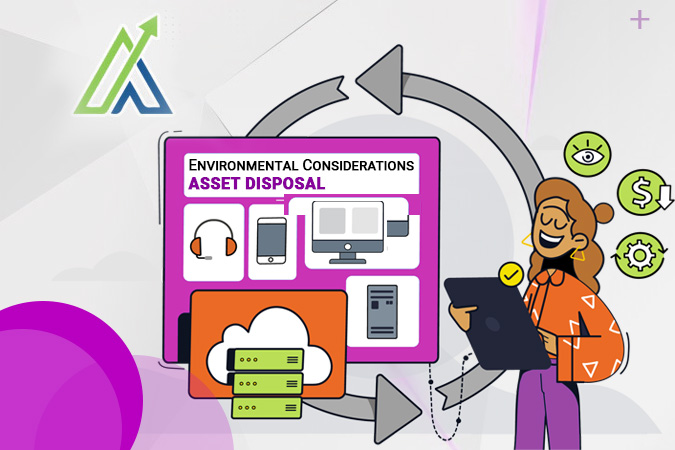India is growing fast, and with that growth comes a lot of waste. The way we get rid of old stuff, from electronics to construction debris, can seriously mess with our environment. This blog breaks down the impact of asset disposal, the laws around it, and how to do it right.
- Environmental Impact of Asset Disposal
Thousands of tons of trash are dumped every year, damaging the environment. From e-waste to industrial junk to construction rubble, the damage is huge and getting worse. - E-Waste
Electronic trash is building up quickly. Think about all the telephones, laptops, and TVs that we get rid of. Harmful toxins like lead and mercury get into our land and water when these are carelessly dumped. Localities in Delhi like Seelampur are already feeling the effects of this. That poisonous mess should wake you up. - Industrial Waste
Old machines and industrial junk often have nasty stuff like heavy metals. Dumping them without care means more pollution. Gujarat has had to shut down factories because of this. It’s a big, ugly problem we can’t ignore. - Construction and Demolition Waste
Building and tearing down structures creates tons of waste. Concrete, bricks, and metal can pile up and mess up our land. Cities like Mumbai and Bangalore, with their constant construction, are feeling the heat. We need smarter ways to handle this debris. - Legal Requirements for Environmentally Responsible Disposal
Tossing waste isn’t enough; we need to manage it smartly to save our planet. There are some crucial rules to guide us. - E-Waste Management Rules, 2016
The government’s E-Waste Management Rules from 2016 push producers to take back and recycle their products. The Extended Producer Responsibility (EPR) framework makes sure they handle their products from start to finish.
Hazardous and Other Wastes (Management and Transboundary Movement) Rules, 2016These rules set strict guidelines for dealing with hazardous waste. Companies need permission from the State Pollution Control Board and must follow these rules to avoid big environmental problems.
- Construction and Demolition Waste Management Rules, 2016
These rules require separating construction waste and encourage recycling. Cities must set up facilities to process this waste properly. - Tips for Green Disposal of Assets
Managing waste isn’t just about cleaning up; it’s about smart, responsible actions that make a real impact. Here’s how to handle different types of waste effectively. - E-Waste Recycling
Don’t just throw out old electronics. Use certified e-waste recycling centers. Companies like E-Parisaraa and Attero Recycling can handle this safely. Or, donate working devices to schools or NGOs. - Sustainable Industrial Practices
Industries should recycle or dispose of old machines responsibly. Partnering with certified waste management companies is key. Green manufacturing practices can also reduce waste. - Construction Waste Management
Builders should reduce waste from the start. Using recycled materials like reclaimed wood helps. Setting up on-site recycling units for construction debris can also make a big difference.
Questions to Understand your ability
Q: Why is e-waste disposal a major concern?
- Takes up too much space
- Releases toxic chemicals into soil and water
- Costs too much to recycle
- Makes it hard to make new gadgets
Q: Which city in India is hit hard by informal e-waste recycling?
- Mumbai
- Bangalore
- Delhi
- Chennai
Q: What’s the main goal of the E-Waste Management Rules, 2016?
- Cut down on making electronics
- Push for biodegradable materials
- Make producers recycle their products
- Ban electronic sales
Q: Which state shut down factories over poor waste disposal?
- Maharashtra
- Gujarat
- Tamil Nadu
- Kerala
Q: What are the 2016 Construction and Demolition Waste Management Rules meant to do?
- Ban all construction
- Use only new materials
- Promote recycling and reuse of waste
- Import construction waste
Conclusion
Recycling is important when it comes to disposing natural treasures because the process of attaining them is necessarily arduous. It is not only the legal requirement that should be followed, but the preservation of our planet as well. However, it will be possible to minimize the effects through embracing smart practices and adherence to the set rules and regulations.
FAQ's
Old machines and industrial junk have harmful things like heavy metals. Dumping them without care causes pollution. Gujarat has even shut down factories over this.
Building and tearing down stuff creates a ton of waste. Concrete, bricks, and metals pile up and damage our land. Cities like Mumbai and Bangalore are getting hit hard by this constant construction waste.
Use certified recycling centers like E-Parisaraa and Attero Recycling. You can also donate working devices to schools or NGOs to give them a second life.
The 2016 Hazardous and Other Wastes (Management and Transboundary Movement) Rules say that they have to follow them.
Start by reducing waste. Use recycled materials like reclaimed wood. Set up on-site recycling units for debris to keep the waste under control.
These rules require separating construction waste and push for recycling. Cities need to have facilities to process this waste right.

